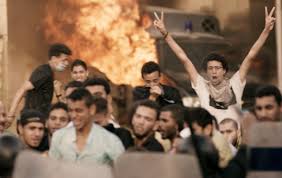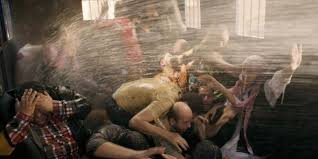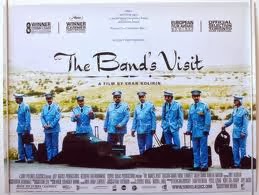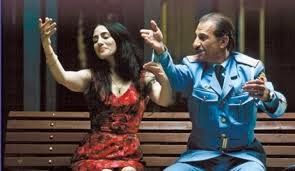The wounds of fire may heal and might even disappear with time; But, the burns caused by vicious words would never heal !!
This is the wisdom shared to the world by the ancient Tamil poet sage Thiruvalluvar in one of his 1330 Kurals (couplets) which is part of Thirukkural, an ancient classic Tamil text which is a monumental work on ethics and morality.
In The Insult, which is set in modern Beirut, Lebanese director Ziad Doueiri explores this very tenet through the events involving two principal characters - Toni Hanna (Adel Karam), a Lebanese Christian and Yasser, a Palestinian refugee. Toni is an automobile mechanic and Yasser Salameh (Kamel El Basha), is a foreman of a construction crew working in Toni's neighbourhood. Toni is also an ardent supporter of the Christian party and is hot-headed. Yasser, on the other hand is reticent, and being a refugee, has an indeterminate legal status despite having lived in Beirut for several years. A faulty drain pipe overhanging from Toni's balcony triggers the initial confrontation and an exchange of insults. This is followed by vehement demands for apology from the other side and soon escalates to a forceful punch to the gut and ultimately, lands the duo in two courtroom battles. The movie captures the unfolding courtroom battles between the two individuals over this minor tussle as it steadily escalates and threatens to engulf the entire nation in turmoil.
From the initial seemingly trivial squabble to the courtroom combats, the movie takes the viewers on a roller coaster ride which includes resurfacing of latent wounds which never heal, traumatic revelations on the realities which were otherwise suppressed, a civil war which despite being over long ago seems to have transcended from the physical realm to the mind space of the population where it is still actively fought on a daily basis, the media melee surrounding the case which brings a fragile peace to the brink; and the effect of these unintended escalations on Toni and Yasser as they contemplate their lives, their painful past and prejudices that are deeply embedded therein which define their grim present as well as their possible next steps. Could there be a sense of hope or the long and deep shadows from their past are set to snuff out all light from their present as well as future ? Seen from another perspective, is this just a case of a personal conflict exploding to ensnare an entire nation or is it a chronic national/regional conflict which has percolated down to infect the everyday affairs of these persons ?
Home to one of the earliest human civilisations, Lebanon, is a small state in the Middle East which is nestled between Mediterranean sea to its west and Syria and Israel on the other directions. Lebanon, which had remained largely peaceful, prosperous and progressive, is unique in the largely Arab neighbourhood by virtue of its demographics consisting of almost equal number of Christian and Muslim citizens. The vexed political situation of the larger region, that has fanned the flames of hatred over the decades, has resulted in deep fissures along ethnic as well as religious lines. Over time, these have evolved in deep seated insecurities, mutual sense of victimhood and anger among all communities. When such groups are almost equally strong, as in the case of Lebanon, this creates a scenario of perfect storm. Not surprisingly, this has resulted in a bloody civil war which spanned from 1975-1990 and consumed scores of its citizenry. Despite the end of the civil war, tensions remain and erupts in the form of ugly violence from time to time as disparate political groups seek to gain mileage by adding fuel to the deceptive, yet highly inflammable embers. The influx of refugees from neighbours in turmoil has provided further feedstock to this cauldron.
Director Ziad Doueiri deserves credit for fashioning an engaging and powerful narrative which does not take sides and keeps the viewer engrossed in the proceedings till the very end. Special praise is due for the way he stages the courtroom battles where the protagonists as well as their attorneys land punches and counter-punches. While he may not be subtle and is also guilty of succumbing to cliches, his narrative is nevertheless energetic and aided by the excellent performances from entire cast which makes even the age old cliches work. With this fabulous feature, he acquits himself as a director to watch out in the future.
The Insult was Lebanon's official submission in 90th Academy Awards for Best Foreign Language Film and was part of the final shortlist. It has been widely praised across multiple film festivals where it has won many accolades including the Volpi Cup for Best Actor (Kamel El Basha) in the Venice International Film Festival. It was also the opening movie of the recently concluded IFFK-2017.
A RIVETING WATCH !!
RATING - 4/5





















